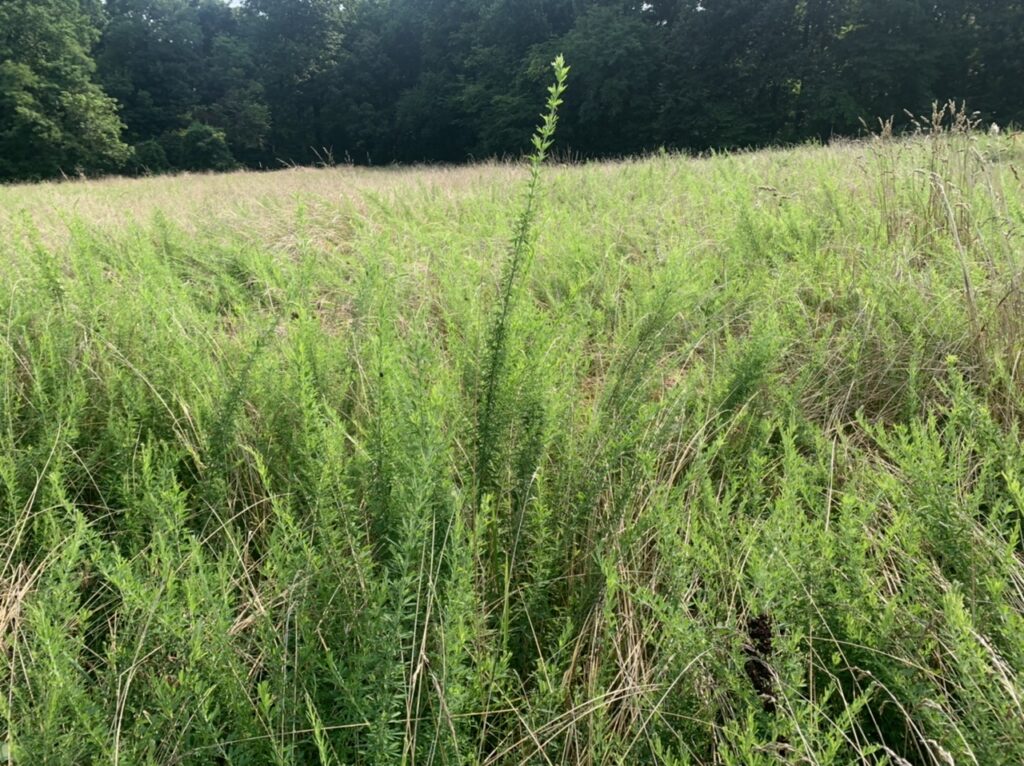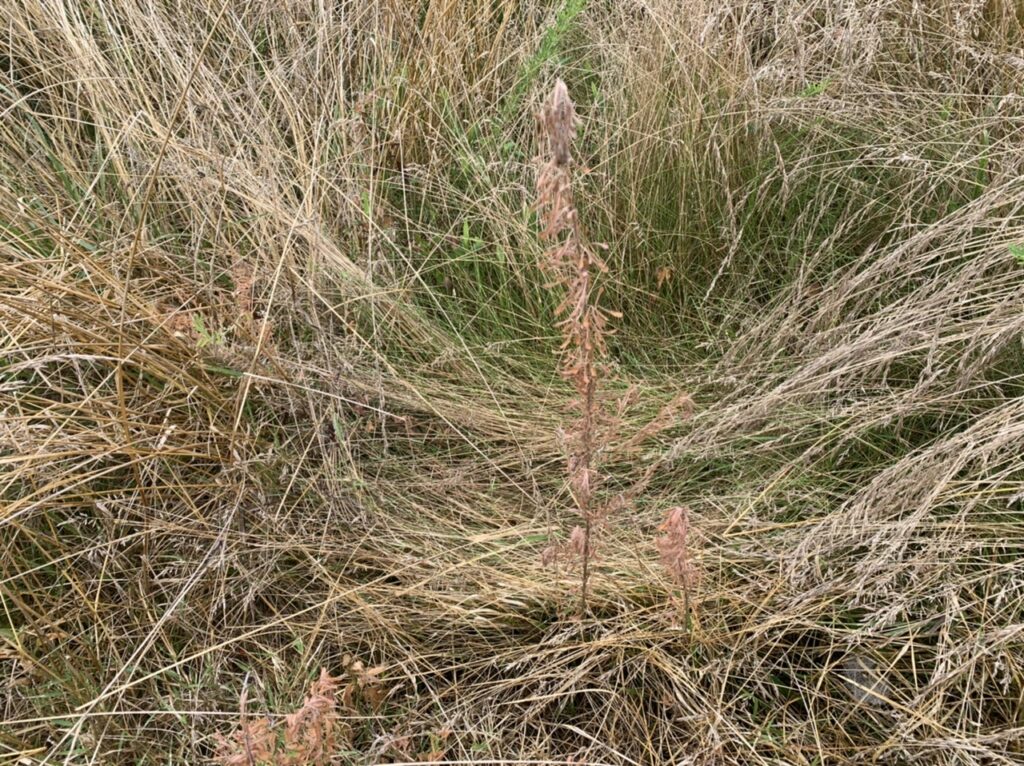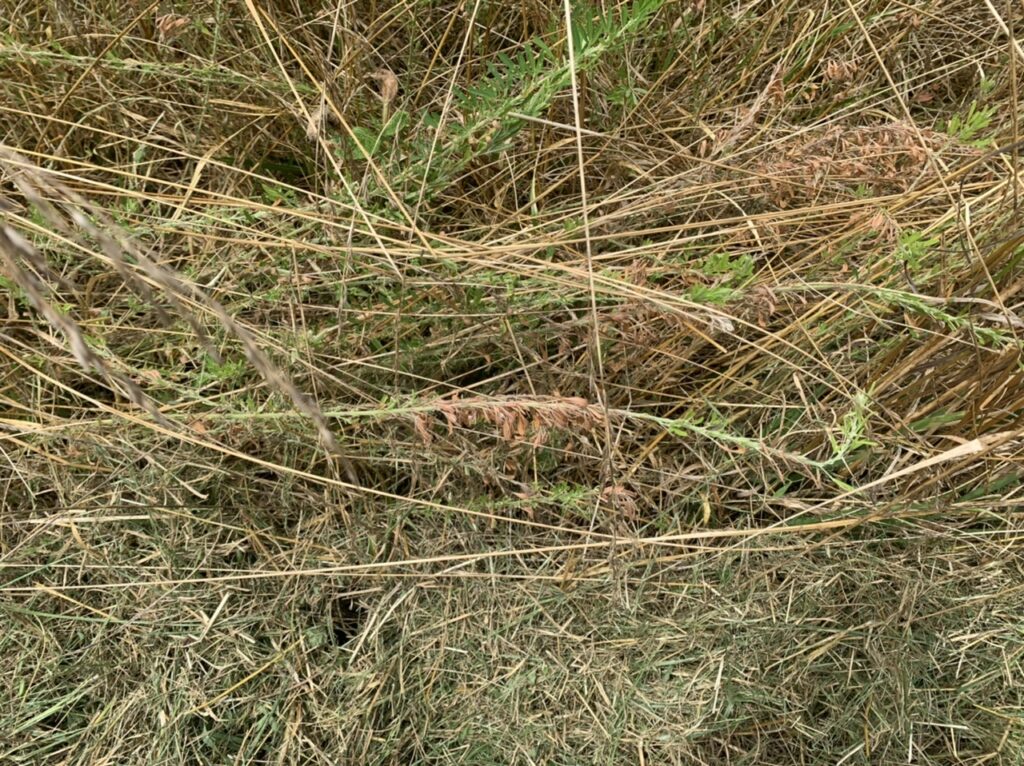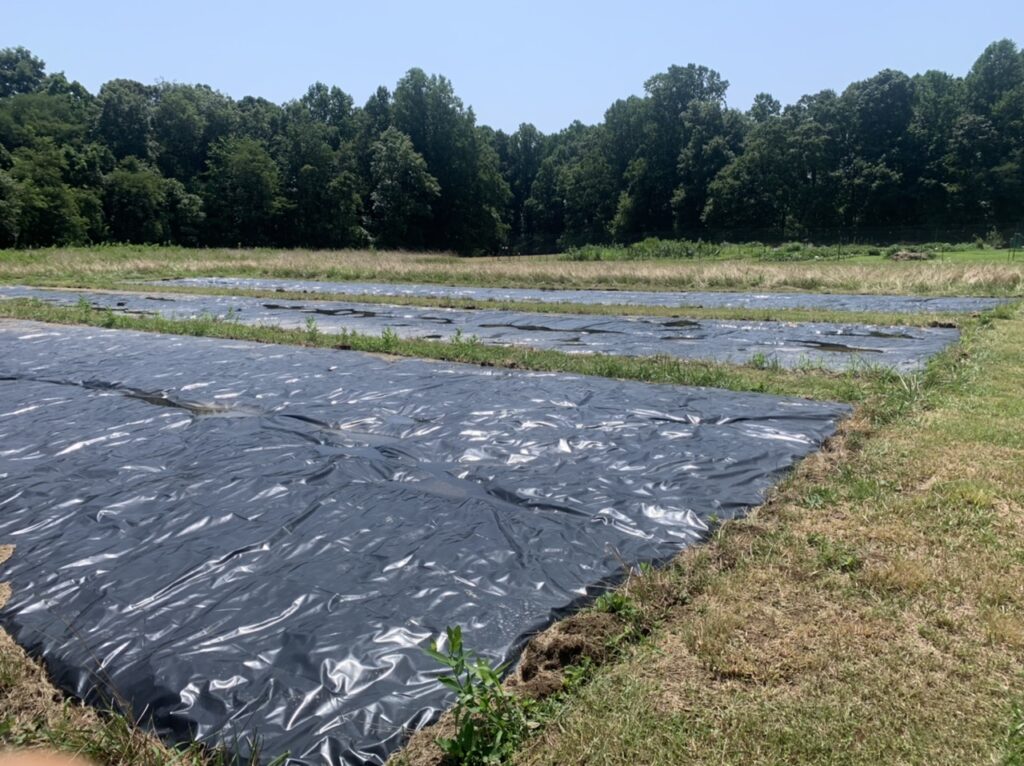By Grace Mayer, Chesapeake Conservation Corps Intern
This summer, ACLT is testing the effectiveness of two different control methods on Chinese lespedeza. Many of ACLT’s meadows have been home to lespedeza, an invasive forb that spreads quickly and out-competes native grasses and flowers. ACLT has had success in controlling lespedeza in the past using a combination of herbicide, controlled burns, and mowing. However, one meadow that is heavily infected with Chinese lespedeza sits between ACLT’s Double Oak Farm and Food Forest. Organic herbicides and solarization were tested in an attempt to find a successful organic method of control that poses the least risk to the food production happening on both sides of the site.

Upon first application, the organic herbicide d-limonene and vinegar both showed some effect on the lespedeza. Many of the plants sprayed with d-limonene were brown and wilting, while plants sprayed with vinegar showed similar but lesser effects. D-limonene acts as a degreasing agent, dissolving the plant’s cuticle and drying it out. Vinegar ruptures the plant cells’ walls, causing the leaves to leak water. Both act to dehydrate the plant, and while both caused some lespedeza to wilt; more leaves on the plants sprayed with d-limonene were brown and dried out compared to the plants sprayed with vinegar. After spraying the plots a second time, the plot sprayed with d-limonene had a visibly lower density of lespedeza and the remaining plants were shorter. While the area sprayed with vinegar did have a slightly lower density of lespedeza than the control plot, the d-limonene was much more effective.


In addition to testing the effects of the organic herbicides, the plots are meant to test the effectiveness of solarization on lespedeza. ACLT has tested solarization in the same meadow in the past, so this year solarization was tested in tandem with the herbicides. A total of three plots were covered with black plastic. Two of the plots were covered with plastic after being sprayed with either d-limonene or vinegar, and a third was solarized without being sprayed as a control. The plastic will be left in place for 5 weeks during the hottest months of the year. The results will determine whether solarization and/or organic herbicides are worth using as a lespedeza control method at ACLT after factoring in cost, labor intensity, risk mitigation, and effectiveness.
Stay tuned …
